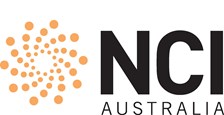
The diagnosis and treatment of cancer and rare diseases in Australia is set to benefit from a partnership between the Australian Genomics Health Alliance (AGHA) and the National Computational Infrastructure (NCI).
Genomic medicine uses a patient’s individual genetic information to guide their clinical care, and helps researchers advance medical understanding of the ways diseases work and how they might be better treated. However, performing all the required analyses on genomic data requires significant computational power and a large capacity for data storage.
As part of the partnership, NCI is providing the infrastructure and expertise required for AGHA genome sequencing projects to aggregate their data into a growing national resource. Globally, pooling and the ethical sharing of this genome information greatly increase our ability to interpret its health implications. With help from NCI, researchers in the AGHA may securely contribute their data to a growing resource. As this data continues to grow, the high performance storage systems at NCI will allow it to be rapidly served to researchers and clinicians.
Over the next five years, AGHA Bioinformatician Dr Dan Andrews estimates that more than a petabyte of genomic data could be stored at NCI. He says, “Genomic medicine is going to become a big part of our lives in the coming years, and making best use of all that data will rely on having access to these kinds of large, specialised computing and storage facilities.”
Researchers and medical professionals at all levels will benefit from the partnership between NCI and the AGHA, by allowing genomic and health data linkages to enhance understanding of disease, rapid mining and interrogation of genomic data, and supporting the development and networking of large genomic datasets – globally.
In the coming years, NCI and AGHA are hoping to see national and international collaborations created around the datasets available. The potential for ground-breaking research is huge, according to Dr Andrews, “The work we are doing is going to improve the lives of people all over the country in a very real way. Genomic medicine is transforming Australian research and healthcare delivery.”


